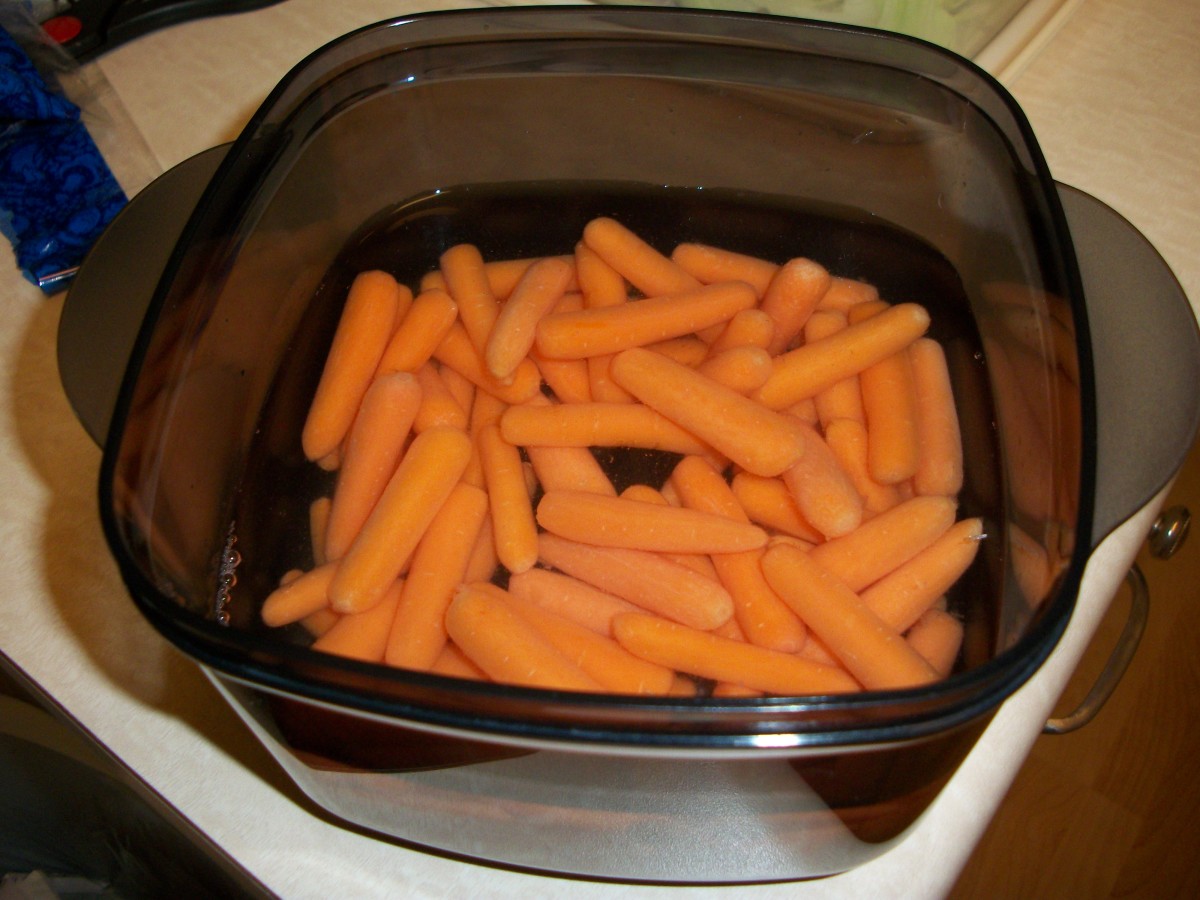Help to Cut your Food Bills

Advice on How To Save Money on Food
We need to live more frugally in order to make ends meet. There are many ways to reduce living costs, starting with reducing the family food bill.
How You Can Save Money : Most people overspend on food by 10% - 15%, but using cash and keeping a mental or physical tally will automatically make you spend less.
Step 1 - Save on weekly food bill
Try to take $30.00 off your weekly food budget. Say your budget for a family of five is $280 per week.
To the shop you go with only $250 in hand, which will force you to inspect prices more carefully, look for bargains, forego treats and resist the temptation to stock up on non-essentials.
Mental math can be challenging with children around, so take a calculator with you – I know when I use this method and look very carefully at which organic products are really necessary and which I can do without, and obviously shy away from the luxury brands. I loose my hoarding mentality which compels me to stock my pantry for ‘Just in Case”.
- If you tend to do a monthly shop, I am not sure how well this method would work without careful planning, however, it is quite amazing how great this tip works for weekly shoppers – you could leave that store quite far under the $30 saving mark.
- If possible, form a club with either your friends, people in your area or your work colleagues. Look for like minded people to add muscle to your buying power and purchase dry stock stock in bulk, from your local co-operative. Such as cleaning materials, tinned food, pet food, polishes etc. Common vegetable and meat purchases could also be looked at e.g. most people buy potatoes, onions, squashes, eggs and perhaps chops, chicken and beef cuts could be added to the shopping list.
- Consider buying generic store brands instead of national brands. All food manufacturers have to follow a set high quality standard, and local stores just put their own label on the item. Check you are getting value for money, as ingredients are listed in order, by weight. So if you are buying a tin of tomatoes, check tomatoes is first on the ingredients list and not water.
13 Ways to Save Money on Groceries - Sarah Fit

Seasonal Buying and Using the Freezer
Step 2
Buy in Season as out of season fruits and vegetables can carry a price tag of up to eight times higher than in season food. This caters for the transportation costs and import tariffs.
Being aware of what’s in season will cut costs, but you will have to compromise on the foods you love to eat all year round.
You could make preserves, jellies and marmalades with fruits such as pears, litchis and oranges to enjoy on their own or in desserts. Saving here is around $10 - $12 per week .
Make your Freezer work for you, by storing everything that may go off and be wasted, such as partly used jars of sauce, bit of cheese, pepper and mushrooms. This step uses savings on waste, and you are more in control of your freezer contents. If you want to make marmalade after oranges are in season, just freeze the fruit whole.
Some food is cheaper frozen than fresh, so use ‘buy one get one free’ offers and batch cook if possible. Fresh ginger is ideal frozen as it is easier to grate and you don’t have to keep buying it.
Watch what is being Wasted
Step 3
Waste vigilance
Monitor foods that regularly are thrown away uneaten. Too soft tomatoes, sad salad, softish vegetables could be blitzed into soup.
Although half size tubs aren’t half price, it does minimize wastage of cream cheese, hummus, or creams. So not a huge saving probably around $20 - $25
It is not safe to eat anything after its best before or use by date. Cut down on the waste by buying less vegetable and fruit per week, you will still have enough fruit and vegetables but you will be saving as less goes in the bin.
- Keep the vegetable drawer dry by lining the bottom with newspaper; this will also keep smells away.
- Ensure your pantry, fridge and freezer is arranged with the closest ‘use by’ dates at the front.
- If you buy a lot of bottled water, rather buy a 5L bottle, it is much cheaper to just re-fill, or simply boil water and once it has cooled down, re-fill water bottles. Ensure water bottles are cleaned thoroughly before re-use.
Tip: Make bagged salad last the week by washing it, spinning in a salad spinner and storing it in an airtight plastic box in the fridge. Your supermarket deli counter can sometimes be cheaper than pre-packaged.

The Clever Cook
Step 4
Clever cooking will have you picking up a whole chicken, instead of the breaded breast strips. Food that is close to its natural state is cheaper food than that which has been added to.
At home, you could take off the breast meat and breadcrumb it – put the joints aside and freeze for a casserole and lastly make a chicken stock out of the carcass. Just this little chicken exercise should save you about $6.
- Store homemade soup in zip lock bags. Fill with soup then lay them flat in the freezer; when they are frozen stack them on top of each other to save space.
- Don’t forget when buying meat for casseroles or pies – that they don’t require the most expensive cuts. Chuck steak, from the lower neck is good in casseroles or stews, however try beef shin, which will take about an hour extra to cook, but you will have a dark, melting and tender meat.
Healthy $40 Groceries for Work Week - Plus Meal Plan
Join HubPages - Have Fun while you Earn!
- HubPages
HubPages is your online space to share your advice, reviews, useful tips, opinions and insights with hundreds of other authors. HubPages is completely free, and you can even earn online ad revenue!
Menu Planning
Step 5
I have mentioned Menu Planning before in my Clear the Clutter hub. However, please check your pantry and freezer before writing a shopping list for the items you need. Don't sabotage yourself by deviating from the list.
If you sit on say, a Sunday night and initially pull out your recipe books and plan a nourishing selection of food for each day, ensuring that any possible leftovers from Monday can be used on Tuesday or Wednesday. Perhaps make Thursday night left overnight and to bulk up, use mostly pantry and freezer items to clear out goods that are dating.
This is a huge saver of around $70 per week and will reduce potential waste. If you cannot start the menu planning right away, just thinking through the week ahead will reduce potential waste.
Tip: There are easy to use websites such as bbc.co.uk/food that has a recipe search function that allows you to minimize waste by suggesting recipes using the ingredients you have to hand!
Conclusion:
If you stop to think about the week ahead before filling your trolley, and
- worry less about hoarding foodstuffs,
- be more careful about using what you have, and
- freezing what you can to minimize waste
you could be saving up to $1400 annually or at least 10% of your family food budget.
There are some excellent articles on Hubpages on frugal living - take the saving mode a little further.
Other ways to help Save Money
- How to Avoid Common Money Mistakes
16 Money mistakes you must not make! Typical and common mistakes that can cost you a lot. Don't let these errors catch you unawares. - 35 Money Saving Tips for Frugal Living
Money saving tips to help us live more simply and spend less than you earn. Take the worry out of your budget. - Frugal Living and Making More Money
Frugal living alone will not help you if you really need to earn more money. A Combination of living below your income and making extra income will help you reach your goals. - How to Save Money on Car Fuel Prices
How to to save money on gas. - whether you call it fuel or petrol, here are tips to help you not pay more for your daily commute!








